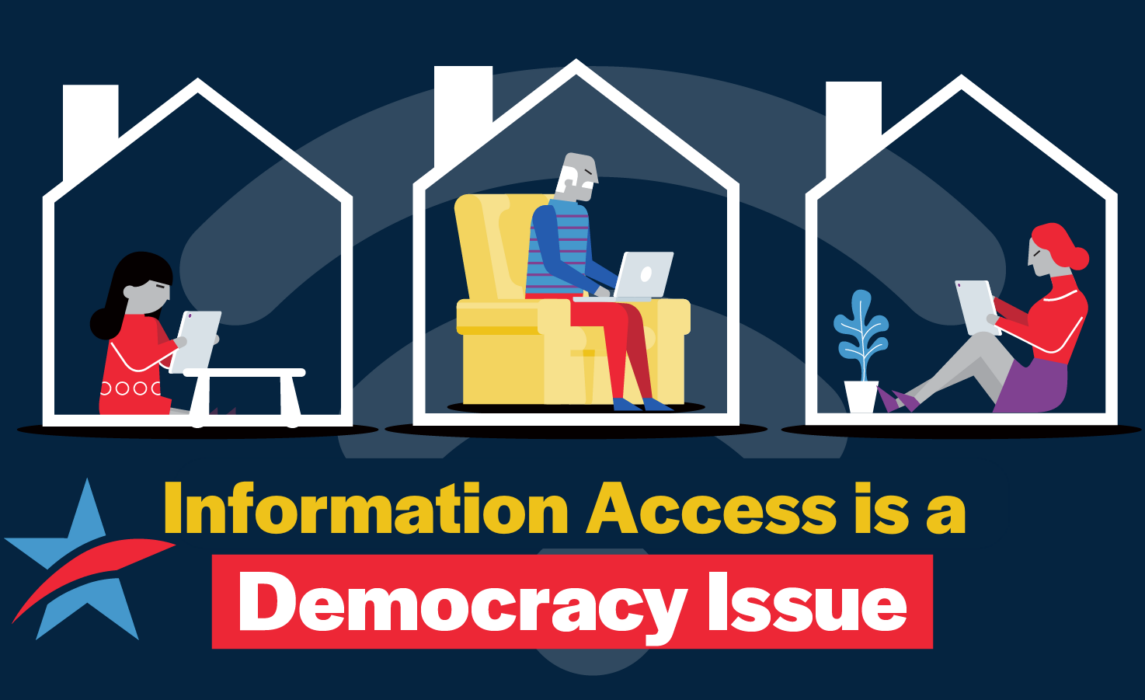Net Neutrality Means A Free and Open Internet for Everyone
Americans rely on the internet to access the information necessary to pursue education, gain employment, receive healthcare, and get civically engaged in our democratic process.
The open internet, or net neutrality, is the principle of online fairness. It enables everyone to share ideas, information and other content on the internet without throttling, censorship, or extra fees from big internet service providers.
Net Neutrality to Return After 7 Years!
An open internet – or net neutrality – is an important step for achieving Digital Democracy.
Since the repeal of Net Neutrality in 2017, ISPs have been free to restrict access to online content, prioritize paid targeted advertisements, and sell your personal browsing data. Now the Federal Communications Commission (FCC) will vote to restore our internet protections! Net Neutrality provides Americans with key protections that ensure our right to information access is respected by our Internet Providers.
- No Blocking Access to Online Content
- No Slowing or Speeding Internet Access
- No Paid Prioritization Schemes

Simply put, net neutrality is the principle of open access to the internet.
It enables users to access the services they want without interference from their internet service provider (ISP).
In 2015, the Federal Communications Commission (FCC) comprehensively codified net neutrality protections by using its authority under Title II of the Communications Act of 1934 to classify ISPs – like Comcast and AT&T – as common carriers. Under this approach, the FCC articulated three bright line rules that ISPs must adhere to: (1) no blocking content; (2) no speeding or slowing content; and (3) no engaging in paid prioritization schemes where customers could be charged special fees for improved access.
Everyone benefits from the open exchange of information that net neutrality affords, but these protections are particularly important for individuals and groups whose voices have historically been silenced or suppressed. The internet has been a powerful organizing tool of our time, allowing social justice movements to gain momentum and widespread support. Without net neutrality, ISPs will have the ability to censor or limit political speech online, threatening to stop movements like these in their tracks.
How You Can Join the Fight for our Online Rights!
Why Common Cause fights for Net Neutrality
In a 21st century democracy, everyone needs access to a free and open internet. The free flow of information is indispensable to a functioning democracy. Today, the internet is the primary communications platform, a virtual public square where this vital exchange of ideas occurs. Its ubiquity, accessibility, and openness have enabled a level of connection and innovation unparalleled in scope. Americans not only rely on the internet to access news and information, but also to pursue education, gain employment, and receive healthcare, among a variety of other uses. This is why protecting an open internet – or net neutrality – is of paramount importance.